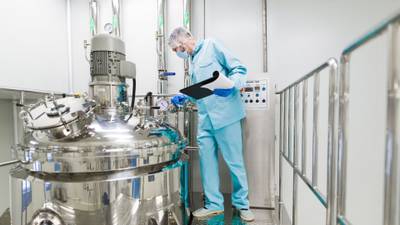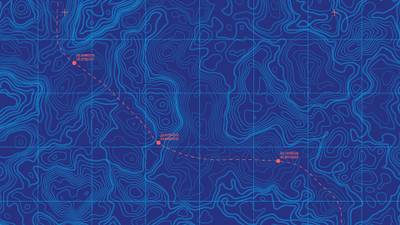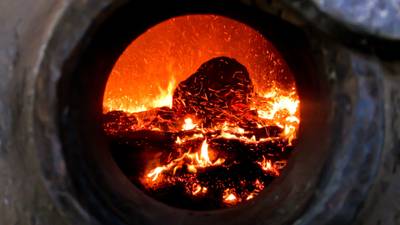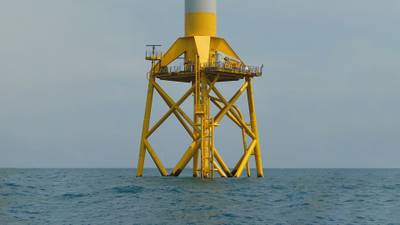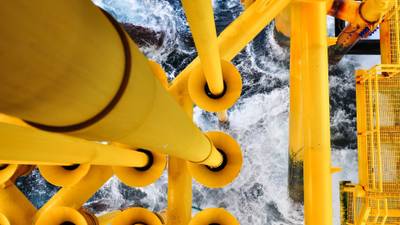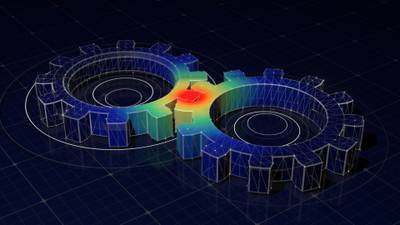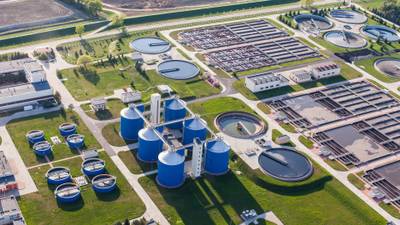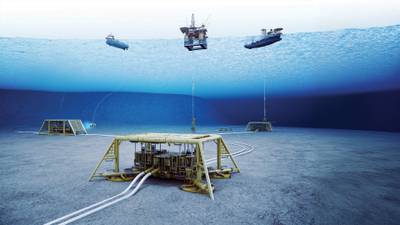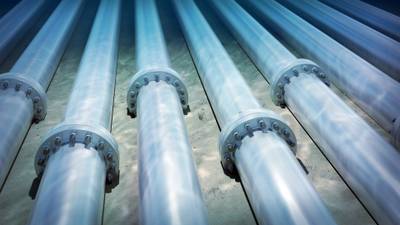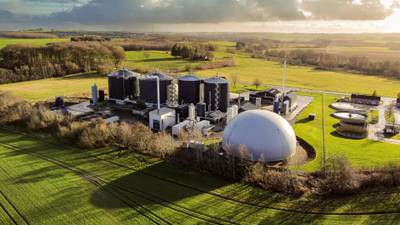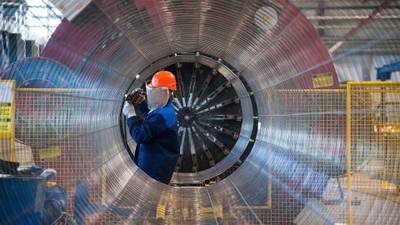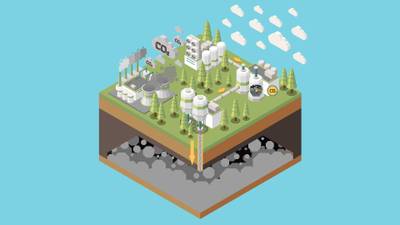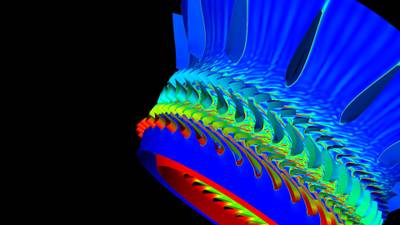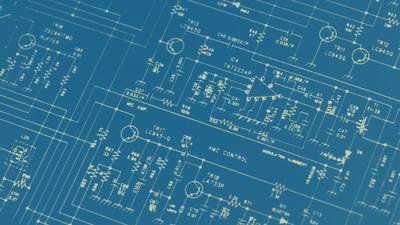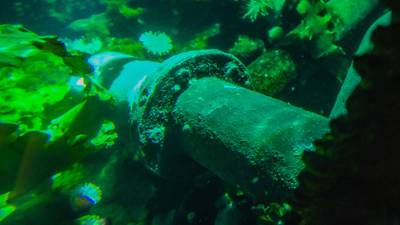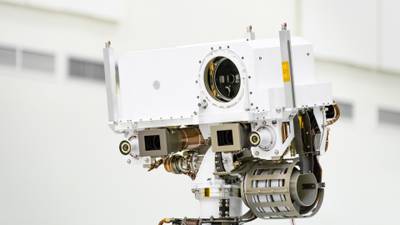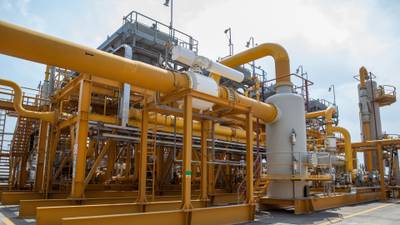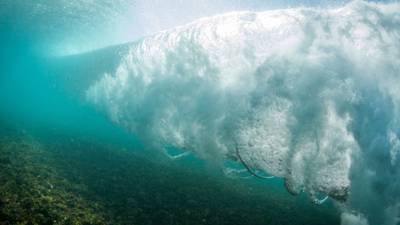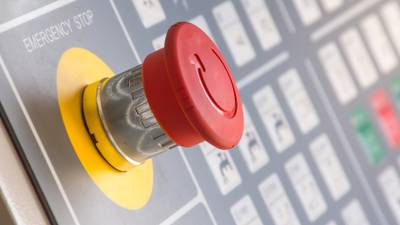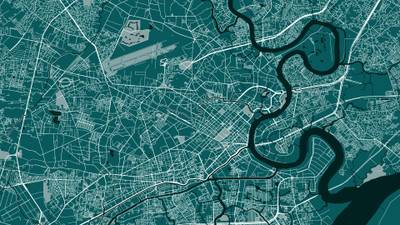Train in the technical aspects and procedures of decommissioning.
Study this focused part of our Masters in Decommissioning on an online course that fits around full-time work.
- Cover the key aspects of process engineering for decommissioning and process shutdown.
- Learn from experienced engineers and industry guest lecturers.
- Explore the rationale behind decommissioning and learn to tackle its technical challenges.
You’ll discover the range of methods, tools and techniques used to shut down, isolate, clean and remove offshore structures.
What you’ll study
The decommissioning of upstream oil and gas systems is a staged process. First, turndown and minimum operation options are explored. Then production is stopped. Then isolation and cleaning of the plant and pipework can begin – and this brings its own challenges.
You’ll study each stage of this process, covering:
- an overview of design for decommissioning
- process turndown and minimum facilities
- process shutdown, isolation, and risk management during shutdown
- vessel and pipeline cleaning challenges (pigging, slug catcher sizing, types of pollutants)
- disposal of fluids (liquid processing technologies, limitations of existing liquids-handling onshore/topside facilities, challenges of disposal via injection wells)
- cutting, lifting and transportation techniques
- abandonment versus offsite disposal
- derogation for footings, and the particular issues of Gravity Base Structures
- removal of parts, pipelines, mattresses, and associated soil treatment
- ‘piece small’ dismantling, heavy lift and single lift removal
- disposal onshore
- safe disposal of retrieved equipment and hazardous substances.
By the end of this course, you’ll understand…
-
The scientific, engineering, and economic rationale for process shutdown and removal of equipment.
-
The uses and limitations of various tools and technologies to assess the condition and integrity of ageing infrastructure.
-
How the mechanical and chemical aspects of ageing infrastructure and reservoir contents interact to create hazardous processes during removal, cleaning and remediation.
-
Specific regulations and legislation associated with decommissioning and safe disposal.
-
The methods and techniques used in processing and in the mechanical removal aspects of decommissioning.
-
The risks and limitations of various cleaning, cutting and removal techniques.
Choose the University of Aberdeen for flexible online short courses

Learn anywhere
On smartphone, desktop and laptop, with no need for a student visa.

Flexible
Flexible hours and 24/7 access, so you can study when it suits you.

20% alumni discount
University of Aberdeen alumni get 20% off fees for this online course.
How you’ll study
Online learning
This distance-learning Process Shutdown course is delivered flexibly, 100% online.
You can learn with us anywhere in the world, no student visa required, and manage your study hours to suit you.
Your teaching
This course is taught at Masters level.
Teaching is delivered through MyAberdeen, our online Virtual Learning Environment (VLE). It holds all the materials, tools and support you’ll need in your studies. Take a look around MyAberdeen.
You can access your learning materials on computer, smartphone and laptop, 24 hours a day. You’ll find a range of resources available, including:
- videos
- audio lectures
- audio clips
- case studies
- reading materials
- discussion boards with your tutors and peers
- the online resources of our award-winning Sir Duncan Rice Library.
Your tutors
This Masters-level short course is delivered by our School of Engineering.
You’ll learn from highly experienced engineers and academics, as well as industry guest speakers.
You’ll be assessed online. Assessment will take place throughout the teaching term.
Types of assessment for this course may include:
- coursework
- online quizzes
- timed online open-book assessments.
Assessment deadlines
Your assessments will have submission deadlines, either during or at the end of the course. Your course coordinator will let you know when your assessment deadlines are, so you can plan your study time accordingly.
The course totals approximately 150 hours of study and assessment time. That’s around 10 – 15 hours per week.
This is an indicative guide to the time required for a typical student at this level to achieve the learning outcomes. This includes time for independent study, as well as teaching and assessments.
You can largely set your own study hours each week to cover the materials. MyAberdeen is available 24/7, so you can log in and study when it suits you.
Activities with deadlines
There will be some activities scheduled at fixed times, such as assessments with deadlines, or meetings with your tutor. But otherwise, you can access and work through the course at your convenience.
Our first-class support structure will ensure that you aren’t alone in your studies. You’ll have contact with your tutors via MyAberdeen and email. You can use social media and discussion boards to chat with your fellow students too.
We provide a wide range of services to support you in your studies and beyond:
- Careers and Employability Service
- Disability support
- IT support
- Library support
- Student Support Service – help with finances, wellbeing and non-academic issues
- Student Learning Service – study support, with advice sessions available
- Aberdeen University Students’ Association (AUSA) – run by students for students
- Toolkit – clever apps and free training that can make your study life easier
Wherever you are in the world, you’ll feel part of our very special Aberdeen learning community.
Your course coordinator

Dr Alf Martinez-Felipe
Alf is a Senior Lecturer in Chemical Engineering and is your course coordinator. His interests cover the design, characterisation, and testing of innovative liquid crystals, ionic liquids, and polymers that can be applied for energy conversion and storage.
Alf is a director on the board of the Aberdeen Renewable Energy Group, with over 280 members involved in the energy transition. He is also a member of the Just Transition Lab and is hydrogen champion at the Centre for Energy Transition.
View Alf’s profileWhere this will take you
Build your learning
We offer a range of specialist online engineering and technology courses you can use to build your skills.
Many carry credits you can build up into postgraduate qualifications, including Masters degrees:
Careers
This course will give you the basic knowledge required for working in the decommissioning area of the offshore/subsea industry. You can use this course to work towards career success with:
- oil and gas operators
- decommissioning contractors
- design houses
- verification authorities
- subsea equipment manufacturers.
Continuing Professional Development (CPD)
Your employer or professional institute may recognise this course for CPD hours. Talk to your employer or institute to find out more.

Free career support
Access our free careers service while you study.
- 1:1 appointments
- CV checks
- Interview prep
- Job opportunities
Entry requirements
Entry requirements
We welcome students from all over the world.
This course has no formal entry requirements. You do not need to provide proof of your qualifications.
But you do need to check the entry guidance above to understand the level of teaching delivered, to decide if this course is right for you.
If you do not have qualifications from the UK, check the equivalent teaching level for your country.
Visa requirements
You do not need a student visa to study online with us.
English language requirements
Teaching is delivered in English.
You do not have to provide proof of your English language skills to join this course. But we want to make sure that you can use English well enough to study successfully.
Recommended level of English
For this course, we recommend the following level of English language proficiency.
These are our Postgraduate Standard requirements, and these are minimum scores.
IELTS Academic, IELTS UKVI Academic, or IELTS Online (not IELTS Indicator or IELTS General Training)
- 6.5 overall
- 5.5 for listening, reading and speaking
- 6.0 for writing
TOEFL iBT or TOEFL iBT Home Edition
- 90 overall
- 17 for listening
- 18 for reading
- 20 for speaking
- 21 for writing
- TOEFL DI code is 0818
Cambridge English: B2 First, C1 Advanced, or C2 Proficiency
- 176 overall
- 162 for listening, reading and speaking
- 169 for writing
LanguageCert Academic / LanguageCert Academic SELT
- 70 overall
- 60 for listening, reading and speaking
- 65 for writing
Oxford ELLT Digital – English Language Level Test Online
- 7.0 overall
- 5.0 for listening, reading and speaking
- 6.0 for writing
PTE Academic (online test not accepted)
- 62 overall
- 59 for listening, reading, speaking and writing
Skills for English: SELT
- B2 pass with merit
Duolingo – tests taken from 1 July 2024 onward
- 120 overall
- 95 for listening, reading and speaking
- 105 for writing
University of Aberdeen English Pre-sessional Programme (PSE)
- Pass
- Valid for one year. Refresher can be offered if out of date
Pre-sessional academic English preparation programmes undertaken at other UK universities
- Pass at an equivalent of 6.5 (C1)
- B2 in all four skills
- Certification must be within one year prior to the start of your course
For full information about language requirements, see our English Language Requirements page.
You will need access to:
A computer (PC, laptop or Mac) with an up-to-date operating system
Most teaching materials are smartphone- and tablet-friendly. But we recommend a proper laptop or desktop for completing assignments comfortably.
Reliable internet access
We recommend:
- a wired connection
- a minimum download speed of 2 Mbps so you can take part fully in live sessions.
Speakers or headphones
- We recommend a headset with built-in microphone and earphones if you’re likely to study in an environment with background noise.
- A webcam is optional, but you may like to use one for some interactive sessions.
Software
We’ll give you access to Office365 applications. This means you can use online versions of Microsoft Word, Excel, PowerPoint and OneDrive and install these programs on up to five personal devices.
If your course requires specialist software, we’ll provide you with access to this and a licence that lasts throughout your studies.
See our detailed IT requirements for more information.
When you study with us, you can expect a first-class support structure so that you’re never alone in your studies.
But learning online does mean you have to motivate yourself and manage your own time.
Your most important commitment will be time – the time to work through, reflect on and understand your teaching materials.
Before you start a course that involves a high degree of independent study, we recommend looking at the time you will be able to devote to your studies each week:
- Be realistic
- Create a weekly schedule as a guide
If you have any questions about studying online, get in touch with our friendly team. We’re here to help.
Fee payment
Your course fee needs to be paid in full before you start your course.
We accept payment via Visa Debit, Visa Credit and Mastercard.
Ways to save
You may be able to get help funding this course via:
- discounts – if any discounts are available for this course, they’ll appear in the section below
- employer sponsorship – we accept full and partial fee payments from sponsors.
Find out more about funding options.
Student card
All our students are entitled to a University of Aberdeen student card. This gives you access to a range of student discounts around the city and online.
This course has no formal entry requirements. You decide if it’s suitable for you.
The course is delivered at Masters level. At this level, you’d usually have at least:
- a 2:1 UK honours degree (or equivalent) in Engineering, Geosciences, or other science or technology field, or
- three or more years’ relevant industry experience.

